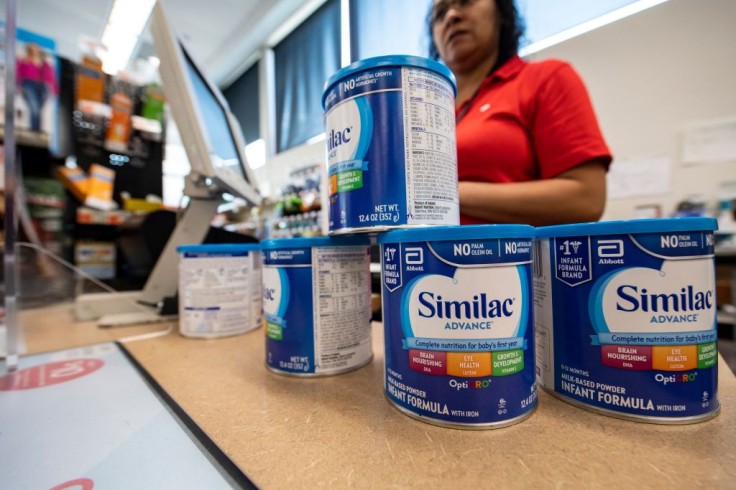
The head of the Food and Drug Administration (FDA) announced on Thursday, May 19, that concerned parents who have been struggling to find baby formula should begin to see improvement on store shelves within the coming days.
FDA Commissioner Robert Califf delivered the good news while testifying before a House Appropriations subcommittee. He said that consumers should get some relief soon thanks to increased output from formula manufacturers and a boost in imports that is being aided by planes of the United States military.
When asked by Rep. Julia Letlow, R-La. for a timetable for when parents and caregivers could see more formula in stores, Califf told her that they are pulling a bunch of levers at the same time.
Foreign formula to start arriving this weekend
An administration official told NBC News hours later that flights to import formula will begin as soon as this weekend. The first flight is expected to come from Zurich, Switzerland, with the aircraft carrying the equivalent of 1.5 million 8-ounce bottles of three formulas: Gerber Good Start Extensive HA, Alfamino Infant, and Alfamino Jr.
The official said that all three products are hypoallergenic for children with cow milk allergies. The formula will be distributed across America after the plane lands in Plainfield, Indiana.
While the production of formula had already been slowed by supply chain issues because of the COVID pandemic, the problem became worse last February after Abbott Nutrition shut down a key facility in Sturgis, Michigan, over a suspected link to the deaths of two infants from bacterial infections.
According to Califf, the FDA is still investigating the issue. The agency's inspection of the Michigan plant on January 31 observed "significant operational deficiencies" and discovered a bacterium that could trigger severe foodborne illness in infants.
Read Also : Operation Fly Formula: Baby Milk to be Flown in The US through Military Contracted Planes
Abbott plant reopening to help ease baby formula shortage
Abbott, however, has said that it found "no evidence" linking its baby formulas to the illnesses after conducting its own review. Abbott, which controls 48 percent of the baby formula market, said that none of the tests performed by regulators have directly linked the cans of formula the infants consumed to the strains of bacteria, Cronobacter sakazakii, found at the Michigan facility.
The federal agency is working with Abbott to reopen the factory, which according to Califf is "going well." Califf said that Abbott has remediated a number of the issues, and they are going to make sure it gets done as quick as possible. Califf added that the facility will need to be up and running before the situation is completely alleviated.
Califf struck an optimistic tone, saying "Within days it will get better, but it will be a few weeks until we're back to normal." According to the New York Times, the United States, which produces 98 percent of formula consumed in the nation, has strict regulations and tariffs as high as 17.5 percent on foreign formula.